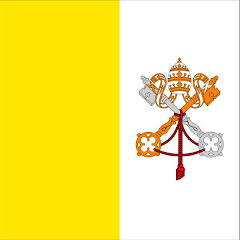By Conor Gilliland
Cardinal Raymond L. Burke delivered a lecture on what he calls a nearly 50-year trend of self-centered liturgy last week at the Thomistic Institute in Washington, D.C.
“In the time since the Second Vatican Ecumenical Council, but certainly not because of the teaching of the council, there has been exaggerated attention on the human aspect of the sacred liturgy,” said the high ranking Vatican official in his May 11 address.
Cardinal Burke acknowledged upfront that the topic could seem redundant because the liturgy is, by its very essence, God-given and God-directed.
“Is not the Church by its very nature divine? That is, called into being and sustained in being by God, and therefore centered in God. Are not the Church herself and her worship by definition directed toward God?” he asked.
But, the American cardinal said, in the last 50 years undue attention has been given to the “human aspect of the sacred liturgy, which has overlooked the essence of the sacred liturgy as the encounter of God with us by means of sacramental signs. That is, as the direct action of the glorious Christ in the Church, to give to us the grace of the Holy Spirit.”
The over-emphasis on the human dimension, said Cardinal Burke, has raised the need to discuss this important topic.
Cardinal Burke drew on Old and New Testament scripture passages to demonstrate that God is the first and last object of worship in liturgy.
“He founded the covenant of faithful and enduring love between himself and his people on the Decalogue – the Ten Commandments.”
The Vatican-based cardinal said that the first three of the Ten Commandments establish the jus divinum – or “the divine right of God to be worshiped by us, in the manner in which he wishes to be worshiped.”
Cardinal Burke continued, saying that the first three commandments establish God as the only rightful recipient of worship. Following these first three commandments are the regulations about making sacrifices at the altar. About these regulations, Cardinal Burke reiterated that they were not man-made, but rather “the gift of God to man, in which God makes it possible for man to offer the sacrifice of communion with him.”
He went on to draw several parallels between Old Testament worship and the New Testament, where God's unique right to be worshiped finds its ultimate fulfillment.
“In the Sermon on the Mount, in which our Lord Jesus communicates the law of the New Covenant – the fulfillment of the covenant on Mt. Sinai – the first beatitude is poverty of spirit, which recognizes the Lord as the source of our being itself and of every good.”
In Jesus' affirmation that he came to fulfill the Old Testament law, rather than abolish it, Cardinal Burke said, “The words of the Lord confirm the fundamental service of the law, which is to honor and to safe-guard the jus divinum, the divine right, and thereby to honor and safeguard the order written by God in his creation.”
The cardinal argued that the Old Testament sacrificial code commanded by God is fulfilled in Christ's commandment at the Last Supper - “Do this in remembrance of me.” This command, he said, brings the rightful worship of God full circle in the Eucharist we celebrate today.
He also asserted that it is clear from Jesus' teaching that “faith in him as messiah, as God the son … is expressed first of all, and most perfectly, in the worship owed to God.”
Cardinal Burke summarized his talk by saying: “All of the norms of the Law are directed to the just relationship between God and his people upon which depends the salvation of the world. And thus they must be respected as the commandment of God and not the invention of man.”
EWTN and the Badger Catholic
Anything that points out the obvious, and yet overlooked fact, that we tend to worship ourselves more than God cries out to be copied and pasted. BTW - does this mean we should get rid of the terrible "hymnals" we have that are overflowing with self- worship songs? HMMMMMM?
Christmas Concerts at Holy Hill
2 months ago






.jpg)





No comments:
Post a Comment